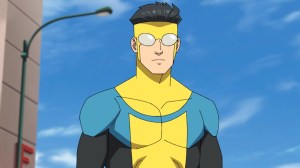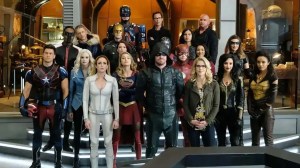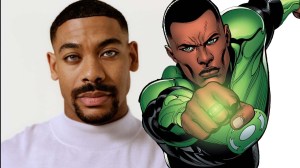Since its debut in 2012, The CW‘s Arrow has been a hit with fans, but has also faced criticism that the show is more of a Batman story than one about the Emerald Archer. It’s not a completely baseless critique, with Arrow leaning heavily on Batman’s comic book mythos for stories, tone, and even villains.
Videos by ComicBook.com
However, Arrow appears to be moving away from those Batman roots and moving on. Ra’s al Ghul is no more, the League of Assassins is nowhere to be seen, and it’s starting to look like Oliver (Stephen Amell) may have left a lot of his brooding on Lian Yu despite Prometheus’ attempt to destroy him. In fact, as Arrow hits its stride in the superhero show’s sixth season things are shaping up to be more like the Green Arrow comics than ever before.
Read on for how Arrow‘s season six may be the most Green Arrow season of the show yet.
More political and social justice themes on ‘Arrow’

To an extent, fans have seen Arrow take on more political, social justice related stories for a little while now. Last season, the show took on the gun control issue in the episode “Spectre of the Gun” and while showrunner Marc Guggenheim told Collider earlier this year that a Black Lives Matter story was something he wanted to explore on the show, this season of Arrow has already been dealing with political and social justice themes.
In this season’s third episode, “Next of Kin” introduced the idea of the government — specifically Star City’s City Council — wanting to crack down on vigilantes by introducing a city-wide ordinance that would make vigilantes and their work illegal. While Oliver was clearly motivated by the desire to keep Team Arrow safe from such a measure, he also opened up the concept of giving the people a voice in the matter by invoking a rule that force the ordinance to go before public vote.
This political turn on Arrow feels a bit like a nod back to Dennis O’Neil’s take on Green Arrow, specifically the character’s change of attitude in 1969’s Justice League of America #75. In that issue, Oliver Queen lost his riches and ended up an advocate for the underprivileged, his politics leaning left. While Arrow‘s Oliver hasn’t been a wealthy playboy for some time now and he’s not exactly a radical lefty, things like the anti-vigilante ordinance vote reinforce the political element of the show.
Oliver Queen narrows his focus.

In 2006’s “One Year Later” storyline, Oliver Queen — who is the newly elected may or Star City — ends up having to choose between fighting for justice on the streets and fighting for justice within the established political system. He ends up resigning as mayor following a scandal and puts someone he trusts in charge instead. While it’s not exactly a one-to-one comparison, on Arrow this season Oliver has done much the same when it comes to choosing one path over the other. This season, Oliver has stepped away from his role as Green Arrow. Instead, he’s handed the mantle and the hood over to someone he trusts — John Diggle — while he does his part from inside the political system as mayor.
Oliver’s motivations for choosing the office of mayor over the hood of the Green Arrow may be different than what drove his comic book counterpart’s choice — On Arrow Oliver is being investigated by the FBI and he also has son to worry about — but the narrowing of focus is very much the same.
The increased influence of fatherhood

Oliver Queen hasn’t exactly been the best father in comics, but fatherhood has been a significant part of the comic book Green Arrow’s story and, as fans are seeing this season of Arrow, has taken a central role for television’s Oliver as well. While the “I won’t make orphans” comment in Mike Grell’s 1987 run, Green Arrow: The Longbow Hunters comes from Dinah Lance/Black Canary and not Oliver Queen, the idea of not turning children into orphans is something that directly comes up in Arrow‘s sixth season. Oliver’s son, William, lost his mother because of the explosion on Lian Yu and it’s revealed early on in the season that one of the boy’s issues with Oliver being Green Arrow is the very real risk that Oliver could be killed. That would leave William an orphan and, ultimately, the potential of making William suffer the same pain of losing both parents motivates Oliver to pass off the mantle of Green Arrow.
Oliver’s role as father is also responsible for some of the more political stories, or at least the perspective from which they are told, in season six, according to executive producer Wendy Mericle. Mericle told TVLine earlier this year that the intersection of fatherhood and Oliver’s public life one that the show explores.
“We are definitely exploring this notion of what is it like for Oliver to have a kid and be in the spotlight in the city,” Mericle said. “We are going to be using that as a platform to tell some stories, because it’s just a natural place to go. It gives us an opportunity to tell political stories from a different perspective.”
Before You Go
Arrow airs Thursdays at 9/8c on The CW
[Embed id=30490]Arrow (TVShow: arrow)[/Embed]





